"Team are always very friendly and accommodating. It’s always very clean and even during busy hours."
- Raissa Oliveira"P3 accelerates my recovery for high training & race preparation. The team & community are so supportive."
- Trent Gardiner"Great place to relax, unwind & friendly team. I come several times a week, there's something for everyone."
- Adrian Finch"P3 has changed my life. P3 feels like a second family. More than a recovery centre, P3 is a community."
- Brooke Coleman-Oakes"I had such a great time, the team were so helpful. A very welcoming vibe that made you want to just be there."
- Roxane Carbery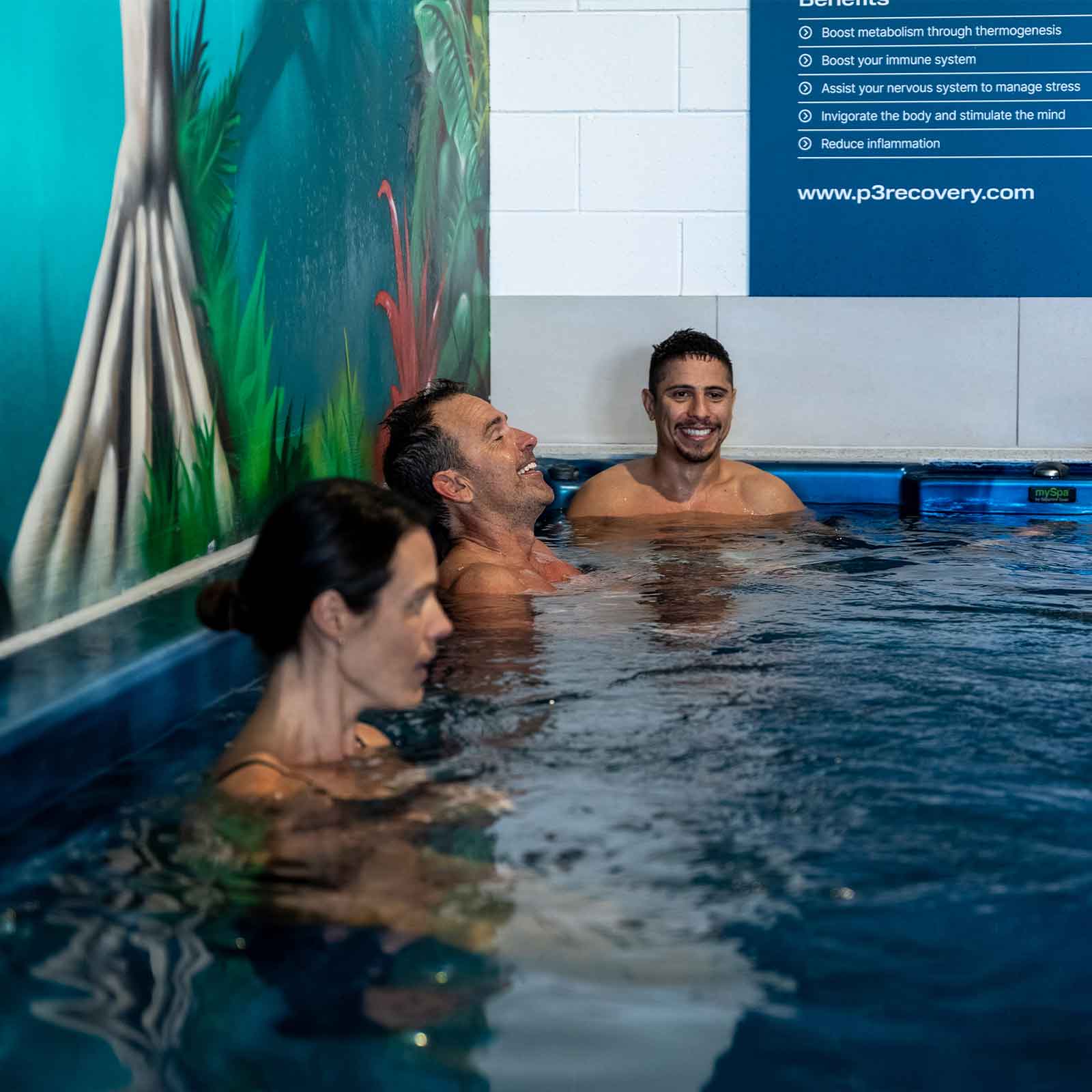
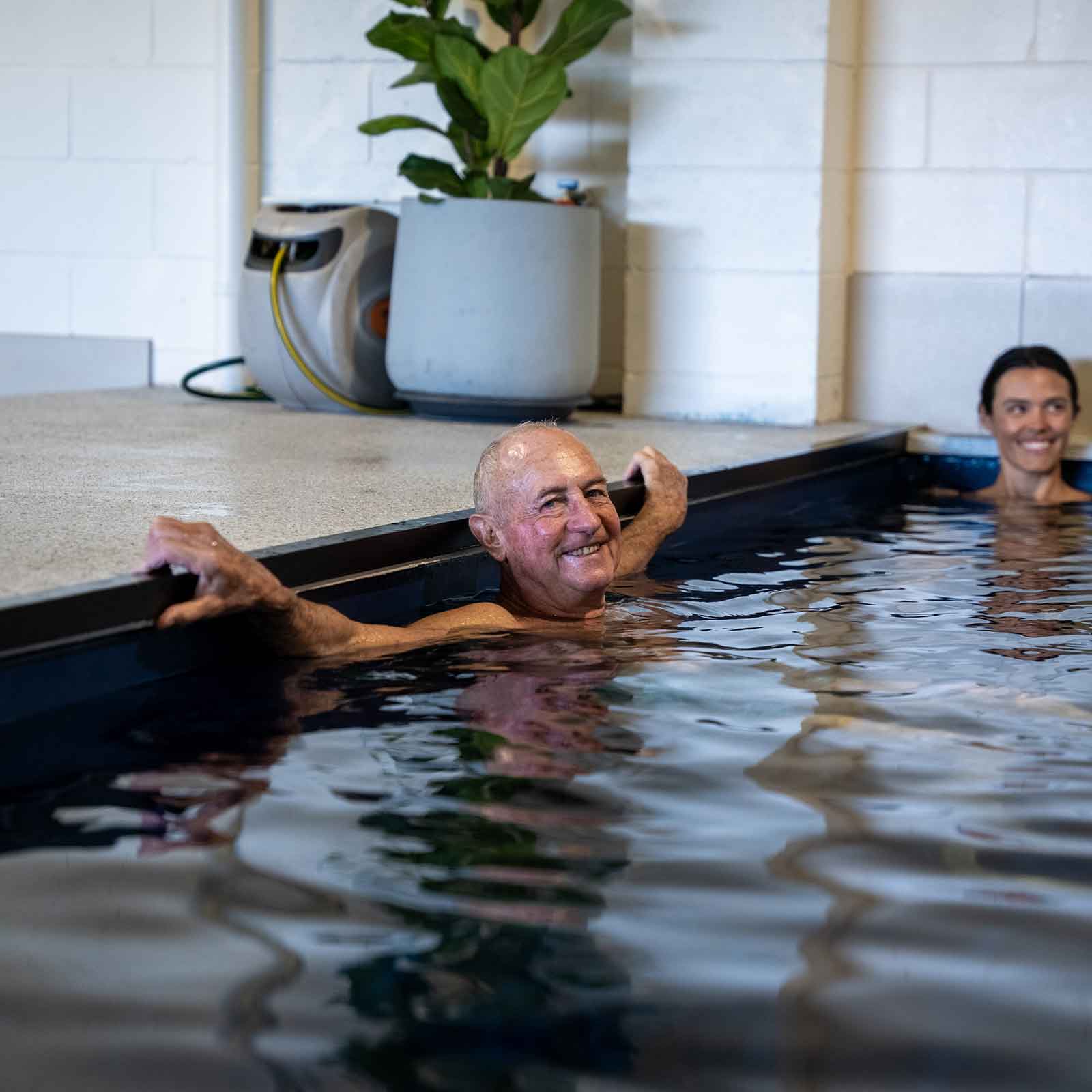
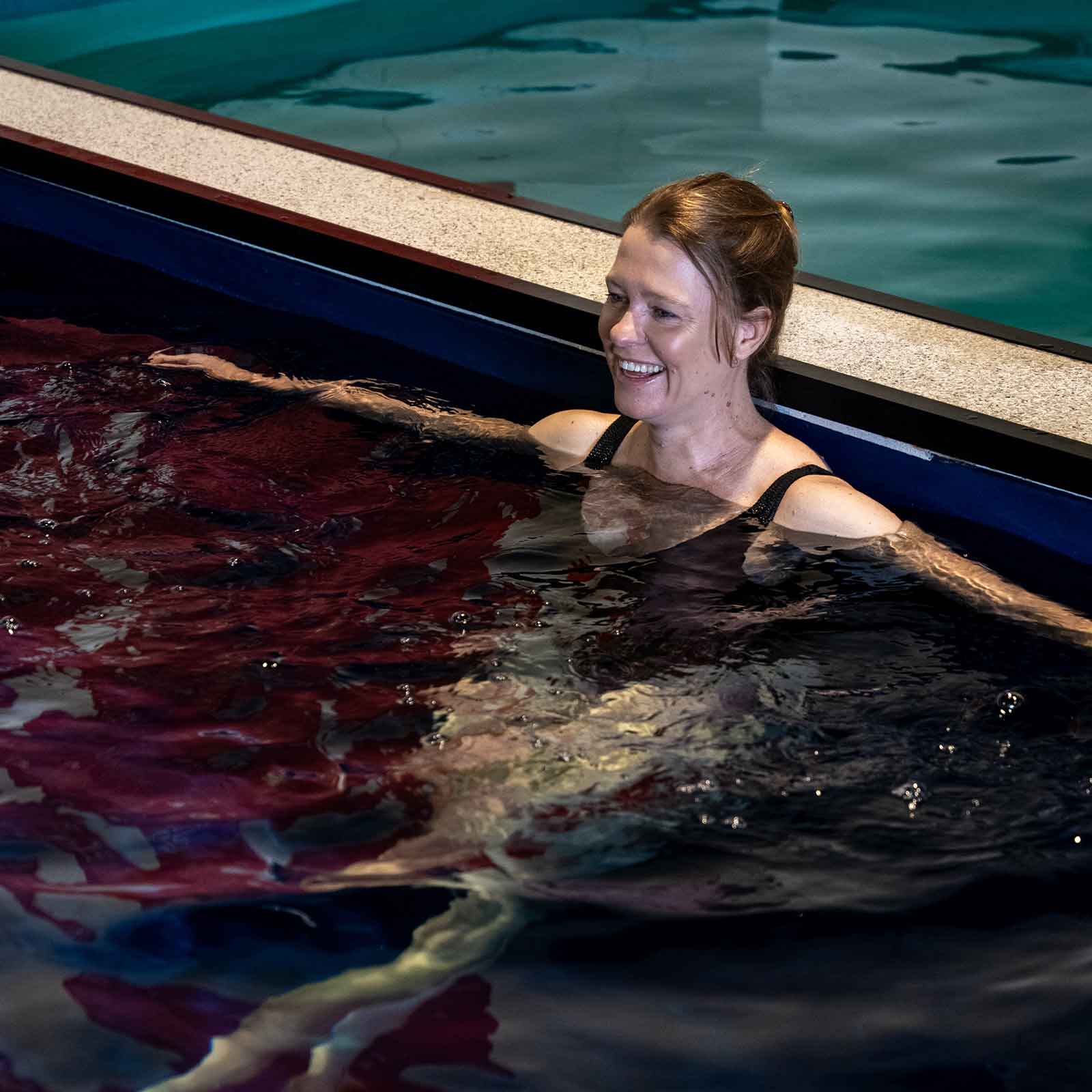
Contrast therapy involves immersing yourself in alternating hot and cold environments. There is an abundance of existing and emerging evidence supporting the health benefits of doing this regularly. From supporting your recovery from exercise and injury by alleviating muscle soreness and inflammation, to promoting stress resilience through increasing heart rate variability and regulating your nervous system – contrast therapy enhances your health and wellbeing in myriad ways.
Ice baths and contrast therapy can help to reduce muscle soreness and inflammation, which can help to speed up recovery time after a workout or injury.
The cold water in ice baths can constrict blood vessels, and then when switching to warm water, it causes them to dilate. This process can help to improve circulation, which can bring more oxygen and nutrients to the muscles.
Regular use of ice baths and contrast therapy can help to increase endurance by allowing the body to better handle the stress of exercise and training.
Cold water immersion has been found to help reduce muscle soreness, which in turn can help to reduce the risk of injury.
Cold water immersion has been found to improve mental focus and concentration by reducing fatigue, increasing energy and sharpening the mind.
Cold water immersion has been found to reduce inflammation and swelling, which can help to reduce pain and improve joint function.
Cold water immersion has been found to boost the immune system by increasing the production of white blood cells, which can help to fight off infection and disease.
Cold water immersion has been found to improve sleep quality by promoting relaxation, reducing stress and anxiety and allowing the body to recover more efficiently.
Alternating between hot and cold temperatures has been shown to help to balance the activity of the sympathetic and parasympathetic nervous systems, leading to increased HRV and improved cardiovascular health.
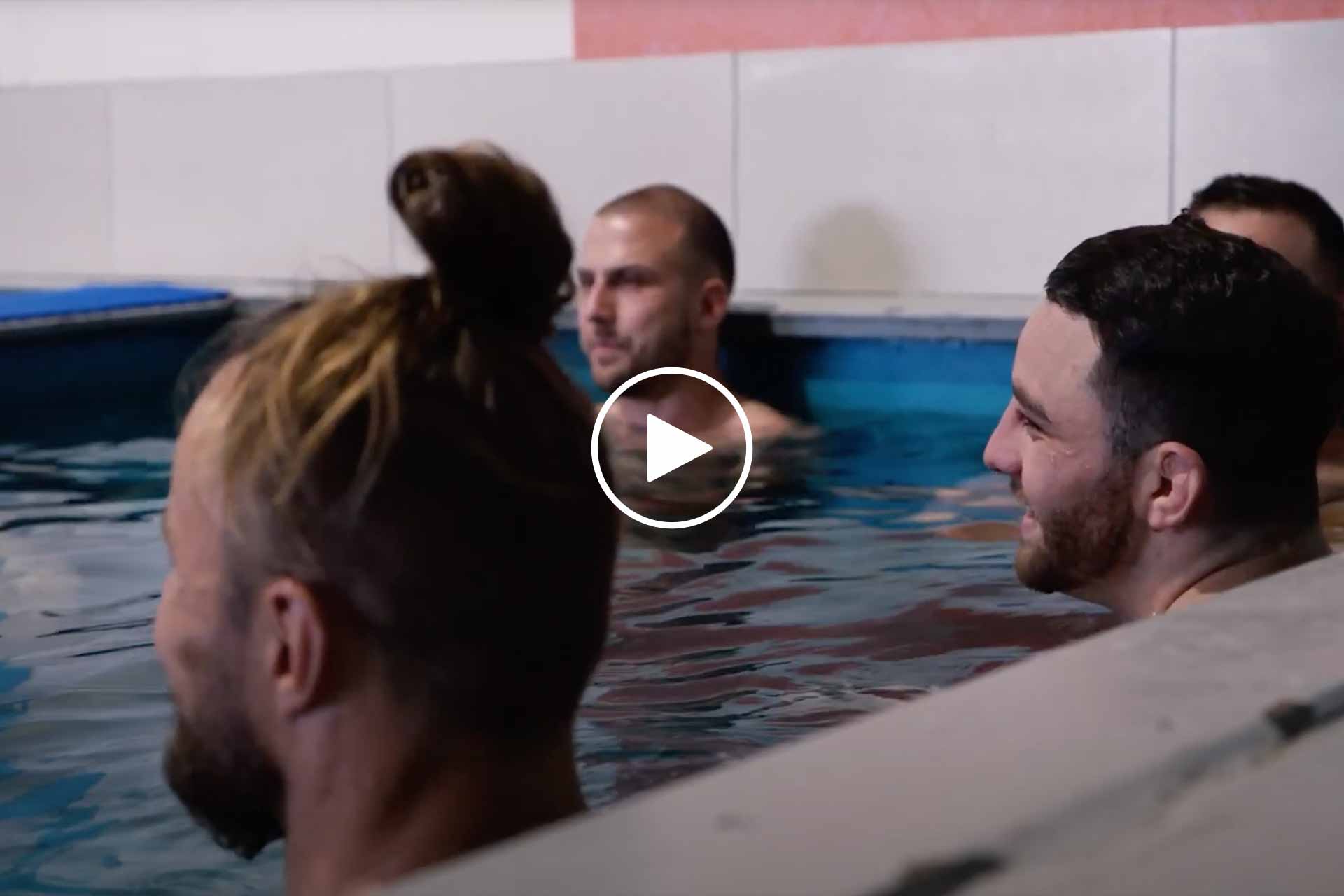
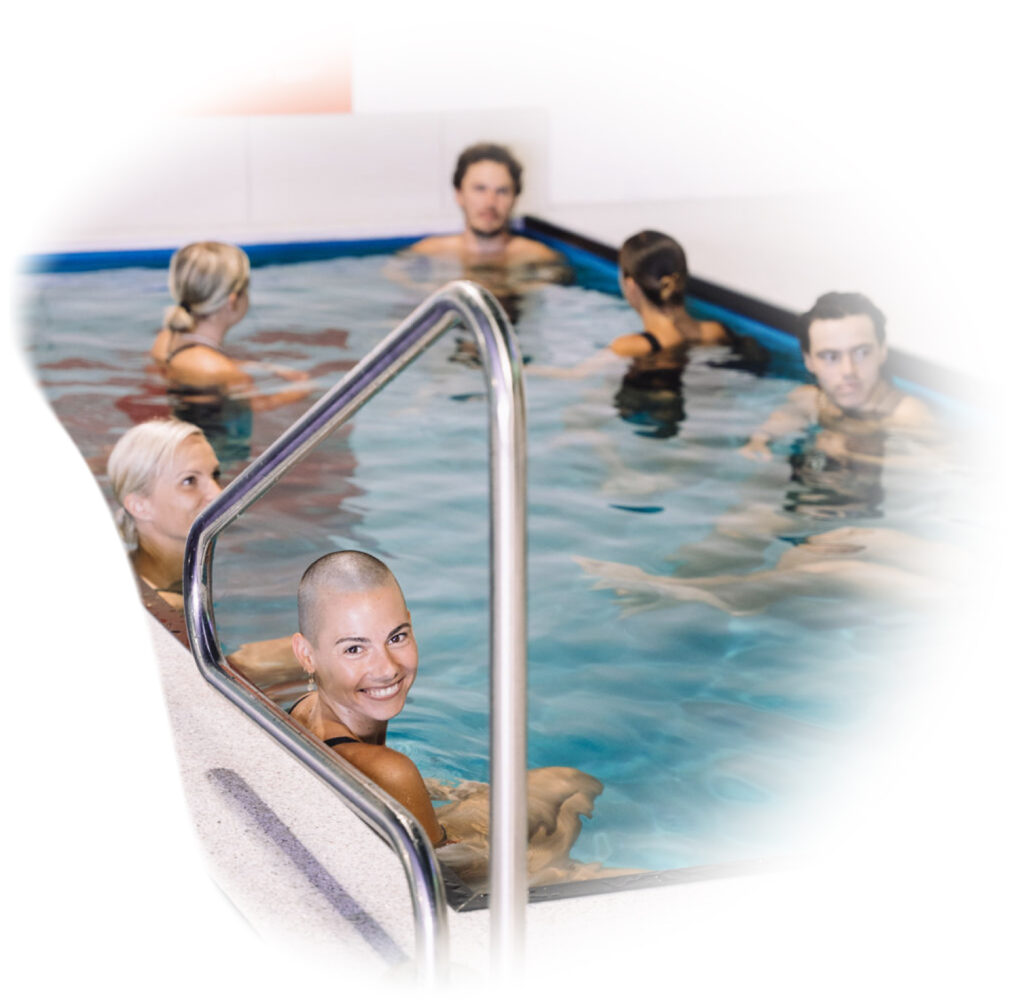
Heart rate variability (HRV) is more than a health metric; it's a profound indicator of your stress resilience and overall wellbeing. Learn the essentials of HRV and practical tips to enhance it for a healthier life.
In today’s fast-paced world, managing stress is crucial for maintaining mental and physical health. Explore five lifestyle hacks, from meticulous planning to amplifying your greens intake, to boost your stress resilience effectively.
Struggling to improve sleep quality? Uncover expert tips and strategies to enhance your sleep quality, ensuring better recovery, improved cognitive function, and a stronger immune system. Dive into our guide for a restful night and a productive day.
Discover the optimal hydrotherapy protocol to boost your sports recovery. Learn how the strategic use of warm and cold baths can elevate athletic performance and recovery.
Pain-free living with Hyperbaric Oxygen Therapy
The anti-inflammatory magic of Hyperbaric Oxygen Therapy
The Science Behind the Cold Plunge: Your Ultimate Ally in Post-Exercise Recovery!
Unlocking the Power of Cold Water Immersion: Boosting Brown Fat for Weight Loss
For athletes, fitness enthusiasts, and those seeking relief from the discomforts of intense physical activity, the quest for effective recovery strategies is never-ending.
In the bustling world of health and wellness, there's a buzz surrounding a unique therapy that holds the promise of revitalising our bodies from the inside out—Hyperbaric Oxygen Therapy (HBOT).
The duration of immersion in an ice bath or contrast therapy will vary depending on your specific needs and your tolerance for the temperature of the water. You may like to begin with shorter immersion times, such as 1-4 minutes in the ice bath/cold pool, followed by 1-4 minutes in the warm/hot pool. As your body becomes more accustomed to the temperature changes, you can gradually increase the duration of each immersion. Don’t push too hard too fast as it can lead to injury or hypothermia.
The ideal duration of immersion will also depend on the intensity of the exercise and your individual recovery needs. For example, if you are an athlete who engages in intense training on a regular basis, you may need longer durations of immersion. On the other hand, if you are someone who engages in moderate physical activity, shorter durations may be sufficient.
If you are concerned or suffer from a specific health challenges, you may wish to speak to your preferred healthcare professional. They can provide guidance on the appropriate duration of immersion, as well as any necessary precautions or modifications to your contrast therapy sessions based on your individual needs.
Contrast therapy can be a great way to help with recovery and overall health. However, it’s important to start slowly and not to push yourself too hard too fast. We recommend starting with 1-2 sessions per week, and then gradually increase the frequency as your body becomes more accustomed to the changes in temperature. This will help your body to adapt without any negative side effects.
It’s also important to note that the frequency of use will depend on your own personal needs. For example, athletes who engage in intense training may need more frequent sessions, while those who have a more moderate exercise routine may need fewer sessions. Of course, it also depends on what actually works with your schedule as well. We have some customers who come every day and others once a week. Just know that every single contrast therapy counts. So whatever you can manage, you’re still doing great things for your body and your health!
If you have any medical conditions like Raynaud’s disease or cold urticaria, we recommend you to talk to your doctor before jumping into an ice bath. These conditions can make you more sensitive to cold temperatures, so it’s important to be extra careful. Of course, you can still enjoy the warm pools, infra red sauna and recovery lounge.
The only other things to note is to take it slow when you first start contrast therapy and work your way up to longer immersions, particularly in the cold plunge pools. And if something doesn’t feel right, or you’re not sure if it’s the right fit for you, it’s always a good idea to talk to your doctor before continuing with contrast therapy.
Contrast therapy can be a great way to alleviate pain and inflammation caused by injuries, but it’s important to use it correctly and, depending on the injury, under the guidance of a healthcare professional. The cold and ice pools help to constrict the blood vessels which can reduce blood flow and inflammation of the injured area. On the other hand, the warm and hot pools will increase mobility, which is ideal for long-term injuries and/or chronic pain or inflammation.
However, it’s important to keep in mind that contrast therapy, in particular ice baths, may not be suitable for everyone. If you have certain medical conditions such as Raynaud’s disease, cold urticaria, or hypothermia, you should avoid immersing yourself in cold temperatures. We advise chatting with your preferred health professional if you have any existing health conditions.
It’s important to consider your individual health needs and conditions when deciding whether contrast therapy is right for you. While alternating between hot and cold water can help improve blood flow and circulation by dilating and constricting the blood vessels, we recommend you consult with a healthcare professional beforehand if you have a medically diagnosed circulation problem. The cold temperatures you immerse yourself in, in particular, may exacerbate symptoms of chronically poor circulation.
If you have poor circulation and your healthcare professional has cleared you for cold water therapy, take it slow to begin with. Start with shorter duration of immersion and increase it gradually. You may also benefit from warming your body up in the warm or hot plunge pools or infrared sauna before getting into the cold or ice bath.
Contrast therapy is not advised during pregnancy as the extreme temperatures may be harmful for both mother and baby. While there are no specific contraindications for contrast therapy while breastfeeding, it’s always best to err on the side of caution. We’d recommend chatting to your health professional who can provide you with personalised advice and guidance based on your individual circumstances.
Our Hot Bath is between 35-40°C, Warm Bath between 28-34°C, Cold Bath between 10-15°C and Ice Bath between 5-10°C.
{{body}}
View More...